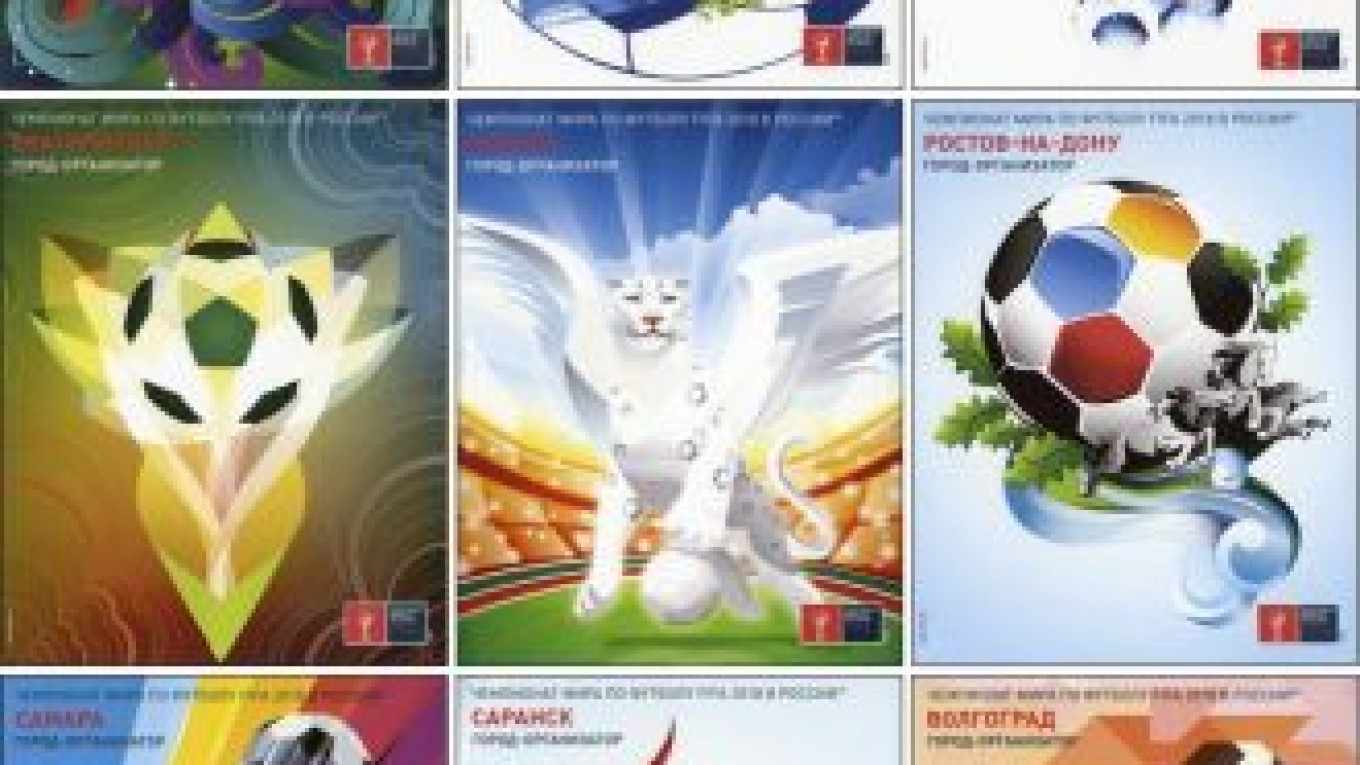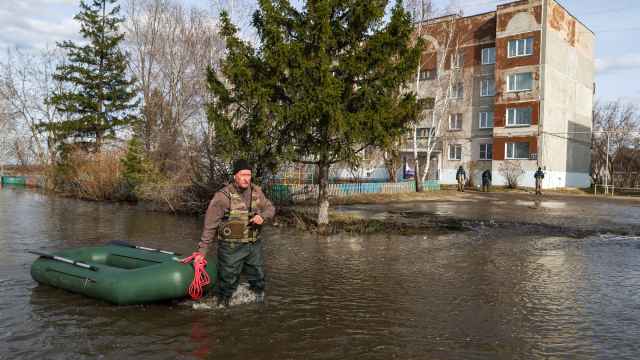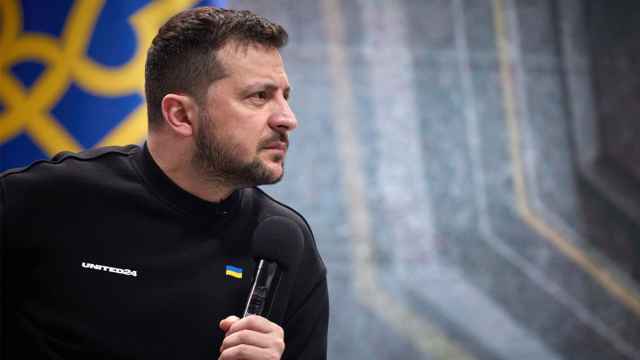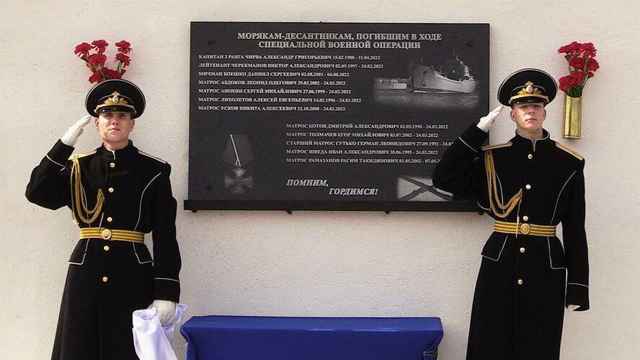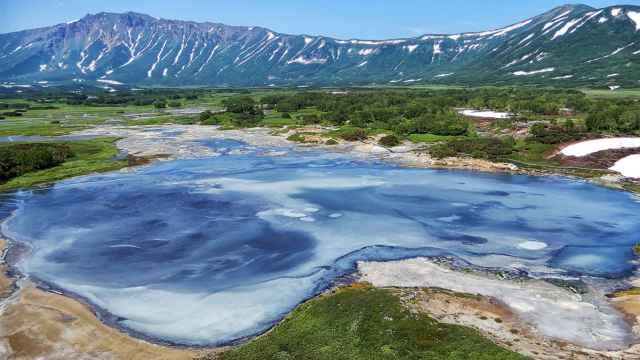Sports Minister Vitaly Mutko said Sunday that preparations for the 2018 World Cup would cost 600 billion rubles ($19 billion), about double the estimate that then-Prime Minister Vladimir Putin gave when Russia was awarded the monthlong football tournament in 2010.
Mutko spoke a day after FIFA announced its choices of 11 Russian cities to host the World Cup in 2018, sidelining bids from Yaroslavl and Krasnodar.
The winning cities are Moscow, St. Petersburg, Kazan, Sochi, Yekaterinburg, Samara, Saransk, Rostov-on-Don, Nizhny Novgorod, Volgograd and Kaliningrad.
Matches in Moscow will take place at two stadiums.
Mutko did not explain the decision to drastically revise the estimated costs upward. "These are not the final numbers," Mutko told reporters. “You can call these figures a rough estimate.”
He said the federal government would pay 200 billion rubles of the costs, while regional governments would cover another 100 billion rubles. The other half is expected to come from private investment.
About 40 percent of the total amount will pay for sports facilities such as stadiums, while the rest will go toward building and improving airports, hotels and roads and providing adequate medical and communications services and security, he said.
Five of the stadiums that will stage the games are now under construction in Moscow, St. Petersburg, Kazan, Sochi and Saransk. The Spartak arena in Moscow will be brand new, while the existing Luzhniki stadium will close for an upgrade next year.
FIFA’s announcement about the winning cities came at a ceremony at a Channel One studio attended by Mutko and FIFA president Sepp Blatter. The channel broadcast the event live, offering video linkups with each of the winning cities except Moscow.
As a consolation to the cities that FIFA turned down as hosts, Blatter likened the situation to a football game.
“In football, we have 11 players [on the field]. The other players have to stay on the bench,” he said at a news conference Sunday at the Radisson Royal hotel. “In football, you have to learn to win and learn to lose.”
Mutko said at the same news conference that the tournament would promote Russia's diversity. Stadiums will draw fans not only to present and past capitals but also to the great rivers Volga and Don, to the Baltic Sea and Black Sea, as far east as the Ural Mountains, and to predominantly Muslim and Finno-Ugric communities.
Krasnodar is in the same region as Sochi, which weakened its case for adding to the mix, Mutko said.
Yaroslavl's proposal for a stadium implied unaffordable costs and included construction of a bridge over the Volga, Mutko said. In addition, the city is close to Moscow, which means it won't be too far and too expensive for Yaroslavl residents to travel to matches.
This past summer, Yaroslavl became the largest city where an opposition candidate won mayoral elections, a slap in the face for the ruling United Russia party, which normally tightly controls the political scene in the country.
On Channel One, FIFA secretary-general Jerome Valcke said that the size of the city was not a criterion for selection but that the legacy the tournament would leave was important.
Blatter opened the envelopes with the names of the first two winning cities. As St. Petersburg was announced, cameras showed fireworks shooting into the night sky. Yekaterinburg was second.
The show's host, Andrei Malakhov, then paused the announcements to show footage of his meeting with “the man who made all this possible,” President Putin. The meeting took place at Putin's suburban residence of Novo-Ogaryovo at 7 p.m. that day.
Putin sounded casual when he greeted Malakhov, saying, “You are here about football.”
The president said the championship would be a good reason for the country's young people to take an interest in sports, and that would help pull some of them away from alcohol and cigarettes.
He also said the preparations would give a powerful impetus to the economy and create new jobs.
Putin said that Russia insisted on having 11 host cities but that the final decision rested with FIFA. Contrary to news reports that said Putin would have the final say over which cities were selected, Putin said he was unaware of the choices.
The government will aim to place some auxiliary sports facilities, such as training bases, in the cities that FIFA excluded, he said. The government will also subsidize fares for residents of those cities to travel to matches, he said.
Valcke and Alexei Sorokin, chief of the local organizing committee, came on stage next to announce Sochi and Kazan as winners.
Brazilian player Roberto Carlos was the next to open envelopes. The young twin brothers who acted in Russia's promotional film for the World Cup bid stood by to pull out the paper strips with city names: Nizhny Novgorod, Samara and Rostov-on-Don.
The Russian national soccer team's new coach, Fabio Capello, and the two boys next announced Kaliningrad, Volgograd and Saransk, the smallest of all the host cities, with a population of 300,000.
Fielding a question, Mutko revealed, perhaps inadvertently, that the remaining winning city was Moscow.
Nevertheless, Blatter returned to the stage, accompanied by Mutko, to open an envelope with Moscow's name inside.
Governors of most regions were present for the video linkups with Channel One, except for the governors of St. Petersburg and Krasnodar, the region that includes Sochi.
At Russia's request, FIFA named the host cities about a year earlier than it normally does. Mutko said Sunday that the country needed room to maneuver, given the sluggish global economy.
Blatter said FIFA, which experienced tribulations in Brazil in the run-up to the 2014 World Cup, was happy to see things happening ahead of schedule in Russia.
“We are in a very comfortable situation when it comes to organizing the 2018 World Cup,” he said Sunday. “It's the first time that there will be six years before the start, and we are so far” along with the preparations.
In Brazil, FIFA chose 12 host cities out of 17 candidates.
As early as this week, the government will order design work on four more stadiums in Volgograd, Nizhny Novgorod, Rostov-on-Don and a city that has yet to be determined, Mutko said.
Design of the remaining two fields will start next year, he said.
Mutko said that in terms of costs, the government used the spending on the Kazan stadium's ongoing construction as a target. The project to build the 45,000-seat field has a budget of 11 billion rubles.
At any rate, the costs must not exceed 5,000 euros per seat, Mutko said.
There are other nuances in addition to costs. Mutko said Yekaterinburg's stadium sits next to a prison, which will have to be moved to prevent a sullen shadow from spoiling the festive mood.
Stanislav Voskresensky, deputy presidential envoy in the Northwestern Federal District, said Saturday that the choice of Kaliningrad as a host city will fasten the link that Russia's westernmost exclave maintains with the rest of the country.
He said he would join the region's governor and the city's mayor in preparations for the cup and selection of investors.
Russia beat out England and joint bids from Spain and Portugal and Belgium and the Netherlands in December 2010 for the right to hold the tournament.
It's the first time the World Cup is to take place in Eastern Europe.
Related articles:


